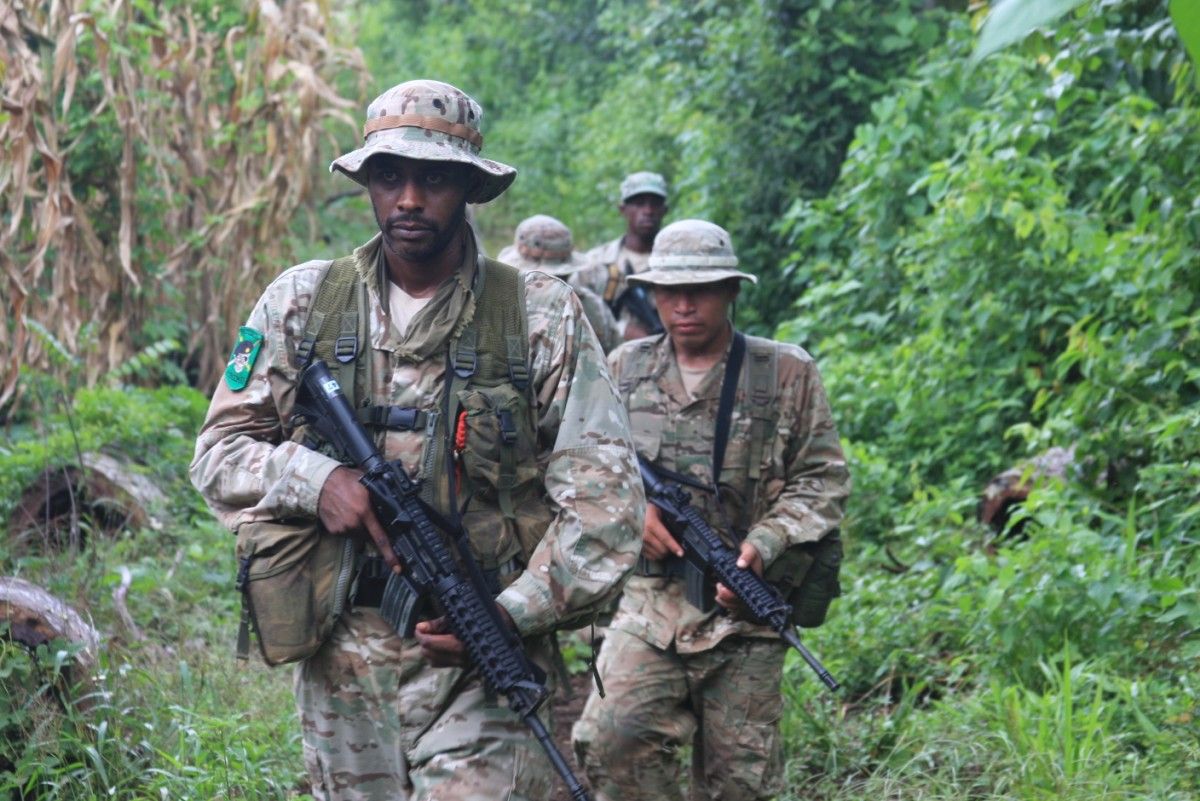This article was also published in The Atlantic.
I am not a military man, but if I were to serve honorably, I think I would like to be a member of the Belize Defense Forces.
I came to that conclusion early yesterday morning while roaring through the jungle in a diesel-powered Ford F350 with eight members of the Belize Special Assignment Group, the country's elite troops. We were near the border with Guatemala, looking for Zeta drug cartel gangsters and illegal pot plantations. Dance hall reggae, 80s pop tunes and patriotic soca music ("Belize, bee-oooo-tee-fool Belize") were blasting from the stereo, as the pickup lurched and shimmied through a sea of mud, plowing over small trees and anything else that happened to be in the way.
It was a nice change from Mexico, where I usually work, covering the bloody drug war there for The Washington Post. In Mexico, skittish soldiers and police ride around in face masks and full body armor, waging wild gun battles with mafia gunmen on city streets and major highways. Many have been killed.
Belize isn't that bad. Yet.
But things are getting dicier here at the country's long, wide-open border with Guatemala. For years Guatemalan peasants have been spilling over the boundary into Belize's protected areas, where they clear the forest and plant crops. Only the pattern has taken a sinister turn lately, military officers told me, as more and more farmers plant marijuana, under the protection—or orders—of heavily-armed Zetas on the other side. Lately the gangsters have carved spooky messages for the Belizean troops into the trees, like "We are watching you," notched with the letter "Z."
"They come over the border and cut down all the trees," said Sgt. Marcos Villagran, the tall, lanky unit commander, who wore a bucket hat and carried an American M4 rifle—a gift of anti-narcotics aid from the United States, like the Ford F350. "This is about land. Land, and following the law," he said.
Three weeks earlier, Belizean troops exchanged fired here with two gunmen armed with AK-47s, shooting back and wounding one of the attackers. Now they were heading up a steamy jungle valley to a location where a large pot field had been spotted from the air—but they had lost radio contact with the lead unit that was supposed to secure the area.
When the mud got deeper and the truck could no longer continue, the unit continued up the valley on foot, moving through the forest without a murmur. It was like hiking in a bug-infested steam room, with only the sound of swishing brush and the soupy mud sucking at one's boots. Where the valley widened, the forest had been cleared, and tall corn fields climbed the hillsides right to the edge of the forest, entangled in bean stalks.
The soldiers would fan out and crouch down at the sound of someone approaching along the trail, their weapons at the ready. At one spot, they ducked into a defensive position, and I could hear them flicking off the safety switches on their rifles. But it was only a farmer, plodding down the trail with sacks of corn loaded on his burro. He was singing love songs in Spanish, but stopped when he saw the soldiers. He flashed a toothless smile and sauntered on through the mud.
By mid-afternoon the sky was purple with rain clouds and the unit still couldn't reach the other team on the radio, so we turned back. Had the other group gotten lost? Was it a radio malfunction? What if they'd been attacked? There was no way to know. The Belizeans don't have any helicopters and all their ATVs were broken, so the only way up the valley was on foot, and there was no time to get there before nightfall. They would have to come back tomorrow.
The soldiers reached the pickup just as it started to pour. They barreled down the highway back to base, teasing each other in Kriol, honking to friends along the shoulder and whistling at the pretty ladies. The Pointer Sisters' "Slow Hand" was on the radio, LOVE FM.
It seems like a much bigger storm may be headed for Belize. But for now the worst of the drug war was still on its door step, and not yet inside.
